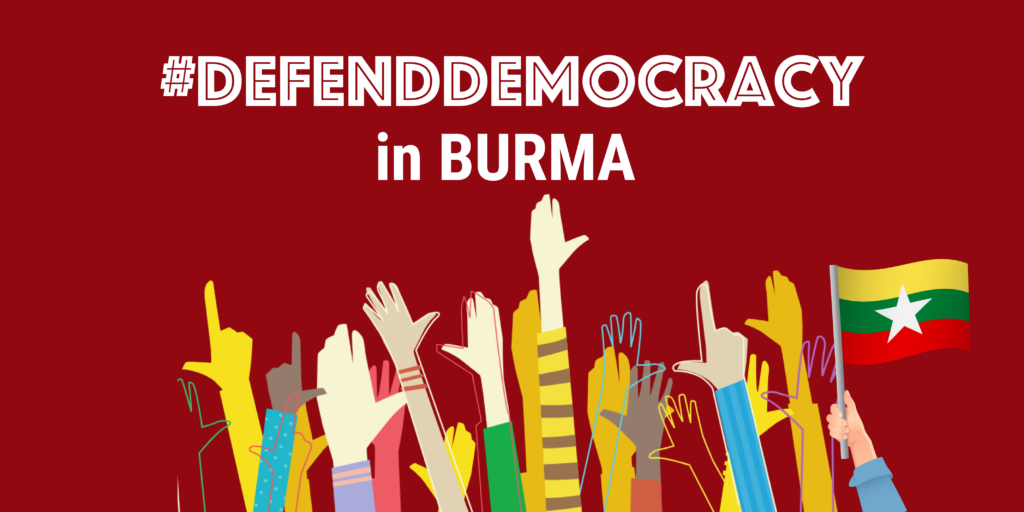
Myanmar’s coup d’état has thrust China back into the uncomfortable position it held for years with Myanmar: as the principal defender of a military dictatorship facing an international firestorm of criticism, the Times reports:
The coup has complicated a geopolitical struggle over a country that had only recently emerged from diplomatic isolation. China has sought to make it a pliant neighbor, while the United States has searched for the right mixture of pressure and encouragement to nurture a transition to democratic rule. It is also unclear how much any outside influence, from east or west, will sway the generals, whose bunkered mentality cut Myanmar off from the world for half a century.
“They consider it their sphere of influence, no doubt about it,” said Derek Mitchell, a former American ambassador to Myanmar who is now president of the National Democratic Institute, an organization that promotes democracy. “They’re very wary of American influence in the country.”
 Burma’s military seized control on Monday after detaining President Win Myint, State Counsellor Aung San Suu Kyi, Union Election Commission Chairman U Hla Thein, other members of the National League for Democracy (NLD), and civil society leaders in early morning raids. This attempt to undermine the country’s democratic transition has sparked outrage among human rights activists and government officials from around the world.
Burma’s military seized control on Monday after detaining President Win Myint, State Counsellor Aung San Suu Kyi, Union Election Commission Chairman U Hla Thein, other members of the National League for Democracy (NLD), and civil society leaders in early morning raids. This attempt to undermine the country’s democratic transition has sparked outrage among human rights activists and government officials from around the world.
In response, the National Endowment for Democracy, International IDEA, and other global democracy organizations issued a joint statement calling for Burma’s military to respect the outcome of the national elections held in November 2020, release all detained political and civil society leaders, end the violence, and allow the country to continue on a path of democratic reforms. [Read the full statement on Burma here.]
“Myanmar’s erratic democratic transition has been fraught with challenges,” says the joint statement with a growing number of signatories. “Yet, democracy still offers the best hope to protect human dignity, provide legitimate governance and advance the freedom of all people. We express our solidarity with the people of Myanmar and affirm our unwavering support for their democratic aspirations.” [Learn more about NED’s work in Burma here.]
 The coup is a disaster for Myanmar, but it also is a signifier of the continuing regression of democracy region-wide in Southeast Asia, says Council on Foreign Relations analyst Joshua Kurlantzick. The region, which once had made significant progress toward democratization, has backslid badly in recent years, with regression in former bright spots including Thailand, Indonesia, and the Philippines, as well as Cambodia and now Myanmar.
The coup is a disaster for Myanmar, but it also is a signifier of the continuing regression of democracy region-wide in Southeast Asia, says Council on Foreign Relations analyst Joshua Kurlantzick. The region, which once had made significant progress toward democratization, has backslid badly in recent years, with regression in former bright spots including Thailand, Indonesia, and the Philippines, as well as Cambodia and now Myanmar.
Given limited options, the United States and its partners could pursue several approaches, says Kurlantzick:
- For one, the United States and partners should apply sanctions on Myanmar’s major military holding companies, Myanmar Economic Holdings Ltd and Myanmar Economic Corporation. These are sizable conglomerates in Myanmar that contribute massively to the armed forces’ coffers, and hitting them would impose a fairly severe economic pinch on the armed forces.
- The United States and partners also should use rhetorical pressure to push all major multinationals not to do business with Myanmar Economic Holdings Ltd and Myanmar Economic Corporation; reports from Amnesty International and others in recent years have shown several multinationals working with these two military conglomerates….
- The Biden administration also should go well beyond the targeted sanctions applied in 2019 on a handful of top military leaders, using the Office of Foreign Assets Control (OFAC) to greatly expand the targeted sanctions to a broader level of top commanders, regional commanders, and senior leaders of the military’s holding companies, for a start. …
- The White House also should call an immediate, emergency session of the UN Security Council regarding the coup, and also consider imposing other measures to limit the military’s earning power, like restoring the JADE Act.
Following the global Call to Defend Democracy, democracy advocates urge the international community to act decisively to protect democracy in Burma and around the world. Interested in signing? Contact signupfordemocracy@idea.int to add your name or organization to the growing list of signatories that #DefendDemocracy. For more information, visit www.ned.org and follow the conversation on Twitter @NEDemocracy; #defenddemocracy.







